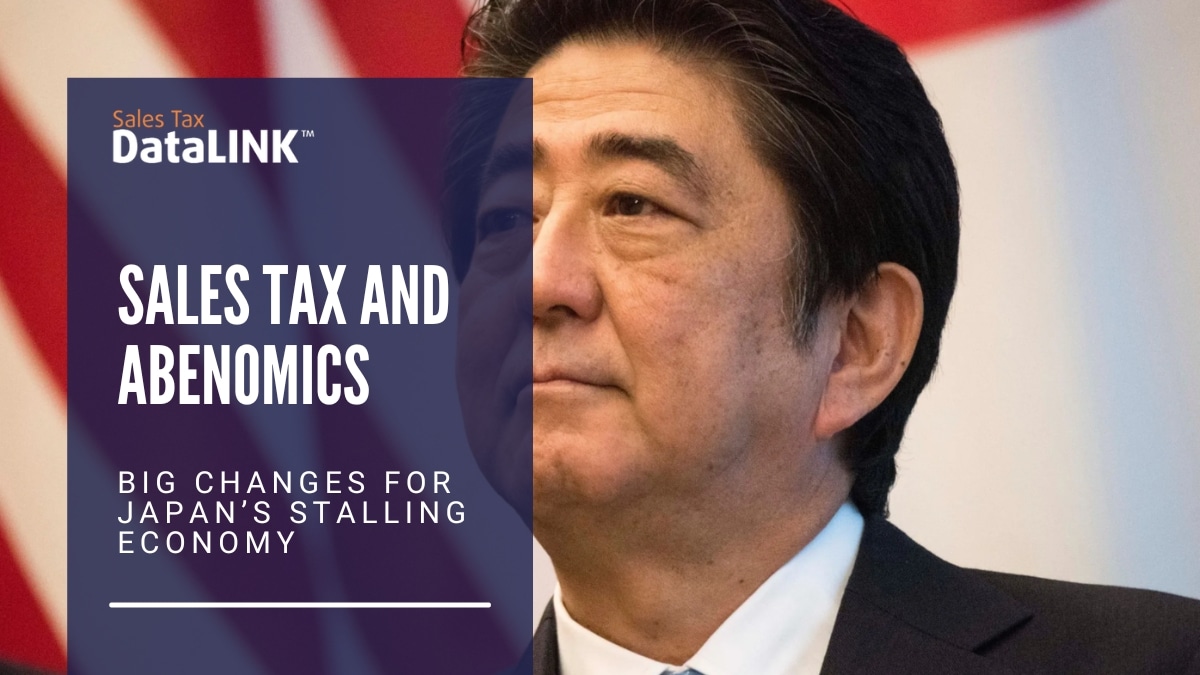Shinzō Abe is the new Prime Minister of Japan, as of December 2012, and he’s using some innovative techniques to make big changes for Japan’s stalling economy. Since the changes, the economy has started to turn around. Following the most recent elections, when his party gained greater power, he’s proposing even more changes to bolster the Japanese economy by raising the sales tax next April as part of a comprehensive overhaul of Japan’s economy. Bloomberg notes that Abe will need $50 billion to cushion the impact of the increase in sales tax but Abe’s cabinet says the new fiscal plan won’t be based on a sales tax hike since it’ll go into effect well before April.
Even though these developments are across an ocean, it’s important to understand our own businesses here in the United States in terms of sales tax. Japan’s economy is based heavily on exports and they’re hoping that a weakened yen will increase the number of purchases made by other countries and increase GDP. Abe has increased inflation to decrease the power of the yen. Japan is the United States’ 4th biggest source of imports, trailing behind Canada, Mexico, and China. On the other side of the equation, the United States is in second for Japan’s exports with China importing the most goods from Japan. The goal of increasing inflation is to make goods in Japan more competitive against those of Canada, Mexico, China, and even the U.S.’s own goods. By decreasing the value of the yen, Japan lets other countries get high-quality goods at a cut-rate price, which creates more jobs and more internal spending in Japan.
The plan seems to be working so far and Japan’s consumers are slowly turning back towards more expensive purchases — but many are worried a sales tax increase could cause all the good work to go to waste. The last time Japan raised its rates in 1997, it started a 20-month recession. For our American businesses, we need to pay attention to these changes. If you’re in competition with a Japanese source, you’ll need to be aware of what’s coming and how close your Japanese competitors can get to take over your customers. Even if your business isn’t competing with Japan, sales tax might be affected, since imports are subject to sales tax as well as import fees.




